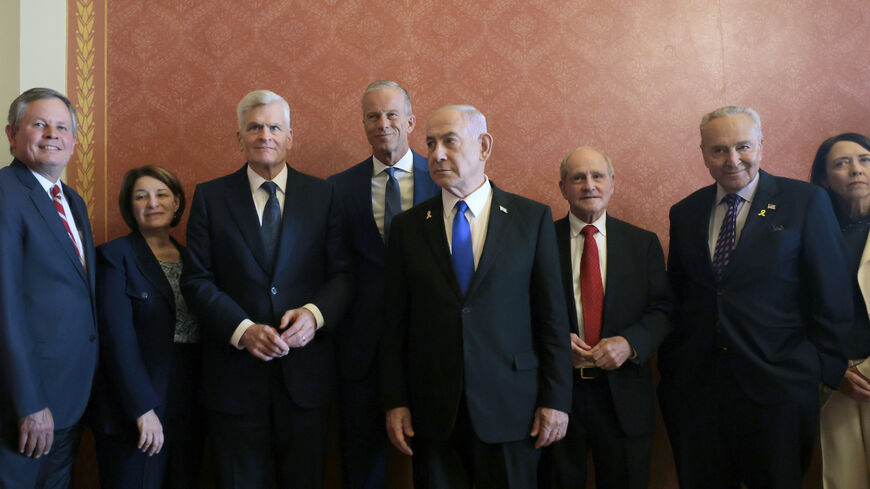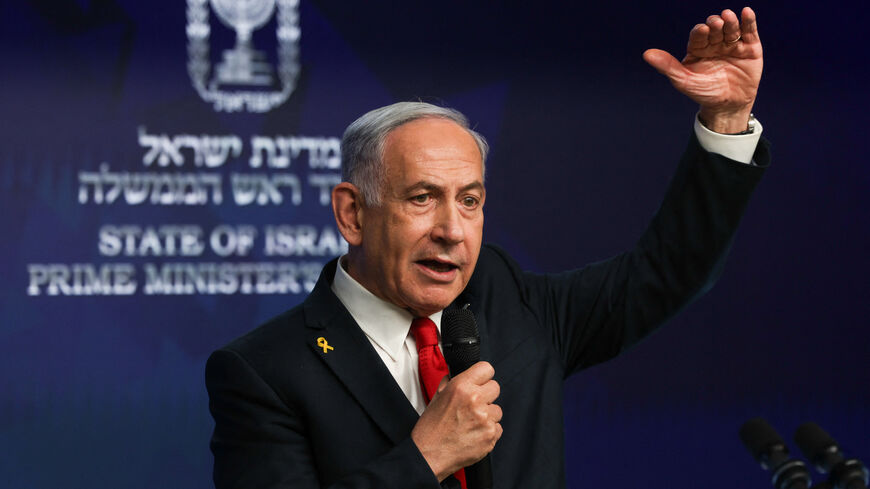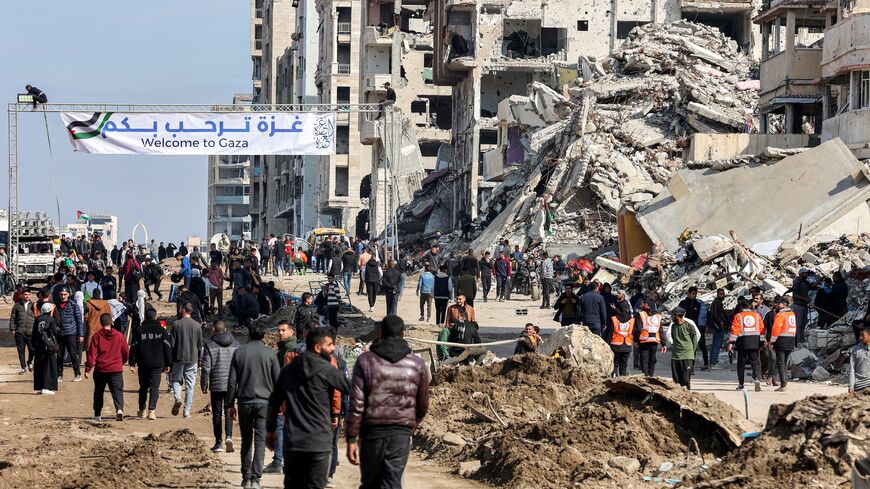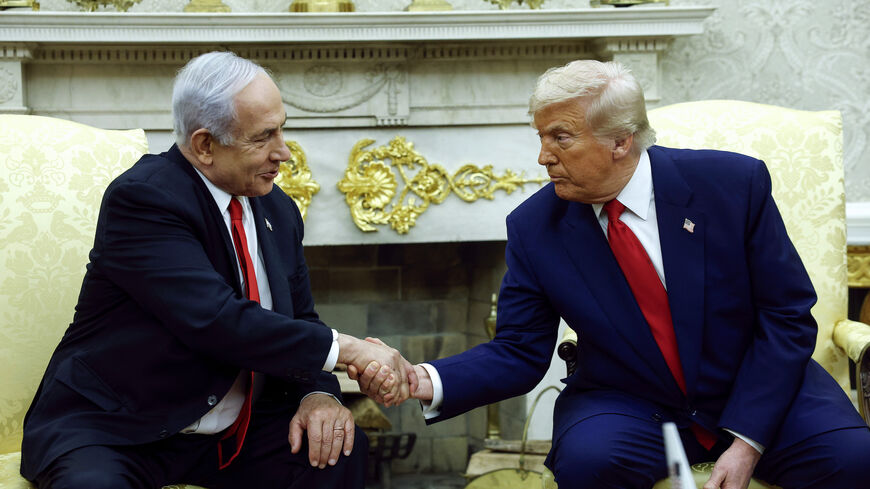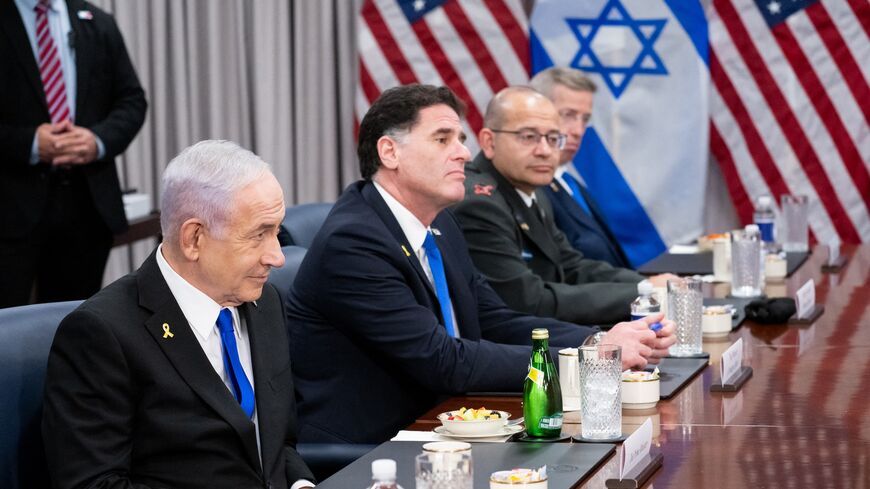Netanyahu ends US visit with no Gaza deal but progress on reconstruction
Prime Minister Benjamin Netanyahu has departed Washington with little to show for his meetings with President Donald Trump.
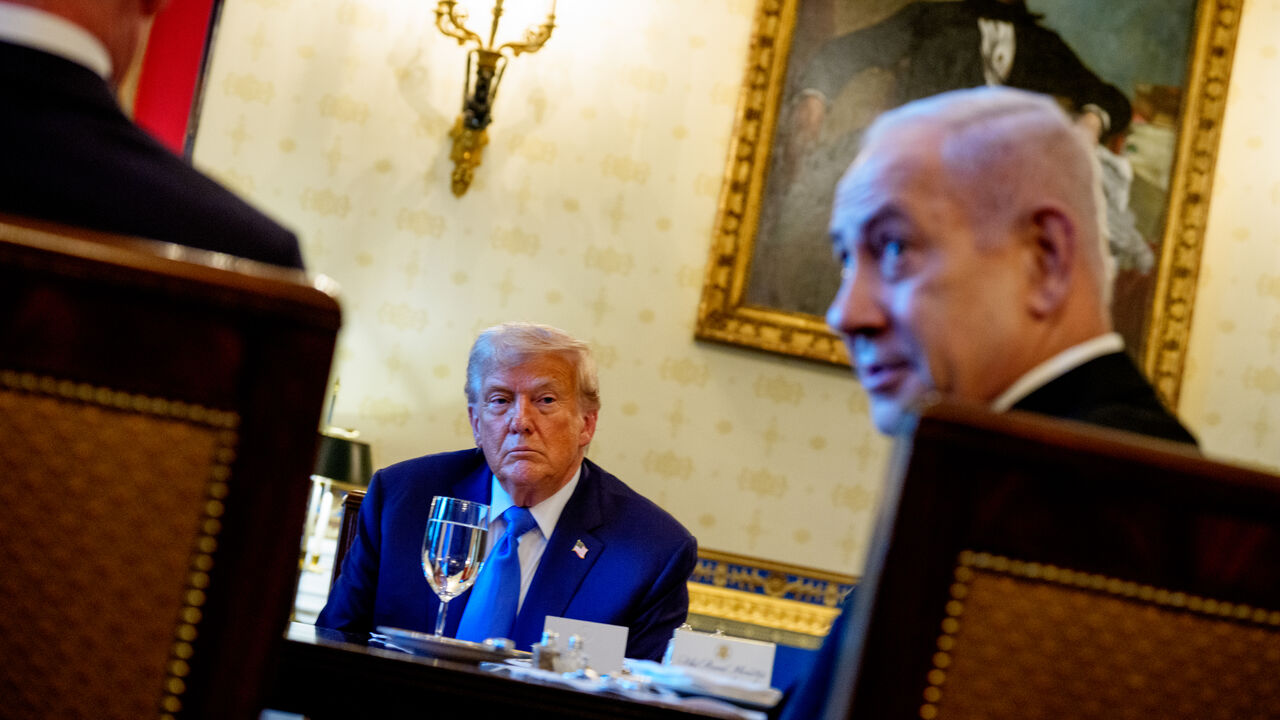
Israeli Prime Minister Benjamin Netanyahu met twice with US President Donald Trump during his three-day visit to Washington, but despite heightened expectations prior, no announcement was made of a Gaza ceasefire deal, nor were there any concrete decisions regarding the Iranian nuclear file or Israeli talks with Syria.
Still, according to Ynet on Thursday, Israel agreed for Qatar and other donor countries to start transferring funds for the reconstruction of Gaza once the 60-day ceasefire currently being negotiated comes into effect so reconstruction can start immediately.
Gaza talks advance, but no breakthrough
Trump and Netanyahu met again on Tuesday after speaking for hours on Monday, possibly indicating there has been some advancement in the Doha talks. Ahead of Tuesday’s meeting, Trump said he would be speaking with Netanyahu “almost exclusively” about Gaza. “We gotta get that solved," said the American president. "It’s a tragedy, and he wants to get it solved, and I want to get it solved, and I think the other side wants to.” The meeting was closed to the press.
Addressing family members of hostages held in Gaza and American Jewish leaders at a Washington event on Wednesday, Netanyahu said that significant advancements have been made in Doha, where Israel and Hamas have been negotiating via mediators since Sunday, but no deal has been reached yet.
According to Walla, Netanyahu told them, "The deal could happen soon. I’m working on it." He clarified to the families that what is now being negotiated is the first phase of a longer process and would include the release of some of the hostages but not all of them. Once agreement on the first phase is reached, negotiations would start on the second phase, during which the rest of the hostages would be freed. Netanyahu noted it will be for Hamas, not the Israeli government, to decide on the identity of the hostages to be released in the first phase.
"You must be patient," Netanyahu told the families.
US special envoy to the Middle East Steve Witkoff is expected to join future Israel-Hamas talks in Qatar. Haaretz reported that no date has been set and Netanyahu seeks the Trump administration's assurance that Israel can go back to fighting Hamas after the 60-day ceasefire if talks on the second phase fail. While Trump might have agreed in his meetings with Netanyahu, there is nothing in writing, read the report. Netanyahu needs a clear commitment to convince his far-right coalition partners Finance Minister Bezalel Smotrich and National Security Minister Itamar Ben-Gvir not to quit his government should a first phase solidify.
According to several Israeli news reports, one of the main points of disagreement in the Doha talks is the Israeli demand to maintain control over the east-west Morag Corridor, between the city of Rafah and the city of Khan Younis in the south of the Gaza Strip. Defense Minister Israel Katz announced earlier this week that he had instructed the military to prepare a plan for what he called a humanitarian city of temporary housing for some 600,000 Gazans forced to evacuate the north of the Strip.
According to Ynet, whether or not this plan is realized, Israel wants to preserve its control over Morag, to prevent the free movement of Hamas operatives in the Gaza Strip. Ynet cited an unnamed senior Israeli official who told reporters in Washington that "it will take more than a day" to reach a deal with Hamas, estimating that talks could go on for another week or two weeks.
It is unclear how much advancement has been made on the other points of disagreement, such as the wording of the American guarantee that talks will continue until an agreement is reached on ending the Gaza war and a full withdrawal of the Israeli troops. Another point of disagreement was who will be in charge of distributing humanitarian aid. Hamas would like the Gaza Humanitarian Foundation to cease operating in Gaza, but Israel and the United States object to excluding the American-Swiss organization established in February 2025 to distribute humanitarian aid during the ongoing Gaza humanitarian crisis.
The European Union said Thursday Israel has agreed to significantly expand the distribution of humanitarian aid in Gaza. On Monday, the Coordinator of Government Activities in the Territories announced it has opened the Zikim crossing point in the north of the Gaza Strip for entering humanitarian aid.
An Israeli diplomatic source confirmed to Al-Monitor that steps are expected in the coming days to widen the distribution of aid, but it is unclear whether Israel’s decision to take these additional measures will resolve its aid disagreements with Hamas.
Ynet reported that Israel agreed for Qatar and other countries to start financing Gaza reconstruction as soon as a ceasefire comes into effect as part of Hamas' conditions for a deal. Israel, Ynet reported, agreed so long as other countries join Qatar in financing the reconstruction. Israel feels Qatar is too close to Hamas' leadership, as some of its leaders reside in the country and with Doha having previously financed the group. The Ynet report noted that a Qatari delegation discussed the issue with the Trump administration earlier this week in Washington.
No big announcements on Syria
US special envoy to Syria Tom Barrack confirmed a week ago that Israel and Syria were engaged in dialogue. Al-Monitor reported on July 1 that Israel and Syria were considering a security deal based on the principles of the 1974 armistice agreement reached after the 1973 Yom Kippur War, and that direct and indirect talks were taking place.
Israel’s public broadcaster Kan reported earlier this week that the Syrian government would consider a meeting this upcoming September between Netanyahu and President Ahmed al-Sharaa on the margins of the United Nations General Assembly summit in New York. Still, it is unclear yet whether Sharaa will attend the event, and no meeting has been set yet, reported Kan.
Trump and Netanyahu made no announcement of a breakthrough in the talks between the Israeli and Syrian governments. Asked whether he is comfortable with the quick warming of US ties with Sharaa, Netanyahu said Tuesday that the weakening of Iran and its proxies in the region presented new opportunities “for stability, for security and eventually for peace. The Israeli premier hailed Trump for opening a “channel” with the new government in Damascus, but declined to confirm that direct talks were taking place.
Did Trump offer Netanyahu green light on Iran?
Netanyahu discussed the Iranian nuclear file in his meeting with Trump as well as during his meeting with Secretary of Defense Pete Hegseth and other senior American officials. A readout of the meeting between Netanyahu and Hegseth, published by the Department of Defense, said, "The secretary reiterated that, under the president's leadership, the United States remains committed to supporting Israel and preventing Iran from obtaining a nuclear weapon." No specific announcements were made on striking Iran.
According to Haaretz, the two countries are fully aligned on Iran. Israel, read the report, understands that the administration is interested in pursuing negotiations with Iran on a nuclear agreement. Ahead of Netanyahu's visit, Strategic Affairs Minister Ron Dermer appeared to have reached a tacit understanding with the Trump administration that Israel will strike Iran if it is shown to be rehabilitating its ballistic missile stockpile, Al-Monitor reported on Tuesday.

